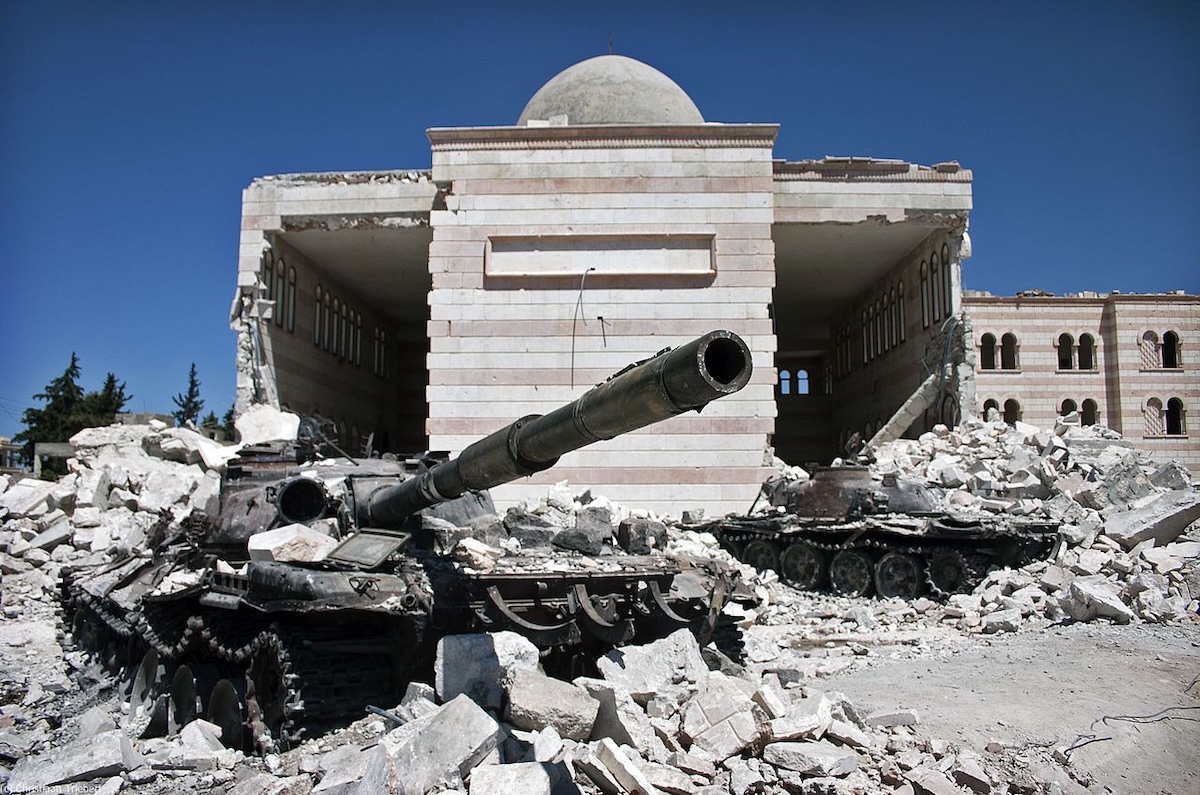Events in Syria have unfolded at lightning speed. Over the weekend, the five-decade rule of the al Assad family came to a crashing end as rebels overtook the Syrian capital Damascus, with reports of Syria’s now deposed ruler, Bashar al Assad, having fled to Moscow.
As questions turn to concerns over the current power vacuum in a nation that sits at the geographic and political heart of the Middle East, there is also growing speculation around what allowed for the rapid takeover of the country by rebel forces.
Reporting by Arab American News suggests a coordinated strategy by Turkey and Israel, both of which maintain strategic interests in seeing an end to the Assad regime.
“The Syrian Observatory for Human Rights has described the recent sweeping offensive involving formerly rival factions as a meticulously coordinated and long-prepared operation,” according to a Dec. 6 article published just one day prior to the fall of Damascus.
“This multi-faceted campaign, coinciding with the Lebanese ceasefire agreement and the U.S. presidential transition from Biden to Trump, demonstrates deliberate timing, likely intended to exploit geopolitical uncertainties.”
Those uncertainties include Israel’s ongoing war with Hamas in Gaza and Hezbollah in Lebanon, two key members of Iran’s larger proxy network across the region, as well as Russia’s war in Ukraine. While Moscow and Tehran had long backed Asad in Syria, both are now bogged down in separate conflicts and have seemingly abandoned their erstwhile ally.
Donald Trump’s return to the White House in January also means likely increased pressure on Tehran just as it faces a weakening economy amid ongoing sanctions, degraded military capabilities and continued, if dormant, social unrest.
Bashar al Assad’s end brings to a close five decades of brutal, dictatorial rule starting with Hafez al Assad, whose Baathist Party took control of Syria in 1971, governing the country through a mix of violence and corruption. Bashar al Assad is believed to have killed hundreds of thousands in chemical weapons attacks during the outbreak of the latest civil war, part of the larger Arab Spring uprising.
Social media is filled with posts showing Syrians emptying notorious prisons in Damascus that have housed political prisoners, often in medieval conditions.
Meanwhile, it remains unclear which of the rebel factions that have waged a now 13-year-long struggle against Assad’s rule amid Syria’s long-running civil war is now in charge of the country. Reporting suggests the group Hayat Tahrir al-Sham, or HTS, has taken control, aided by an umbrella group of Turkish-backed Syrian militias known as the Syrian National Army.
HTS’s leader, Abu Muhammad al-Jolani, once fought against US forces in Iraq as a member of a group that later became the Islamic State.
“Jolani’s leadership of this coalition, which includes both Islamist and opposition groups, signifies a rare moment of unity among factions typically divided by ideology and strategy,” notes the Arab American News.
The paper adds that Turkey’s “betrayal” of the Astana Process – which aimed to bring a negotiated settlement to Syria’s civil war and was backed by both Moscow and Tehran – allowed for the re-grouping of rebel forces and their coordinated attacks southward from their northern bases.
Referring to the Turkish capital, the paper notes, “Ankara, which maintains control over significant portions of northern Syria, is accused of providing logistical and military support to the opposition.”
Further south, Israel’s campaign in Lebanon as well as targeted strikes against Hezbollah leadership and Iranian missile capabilities has put Tehran on the backfoot. Israeli Prime Minister Benjamin Netanyahu called Assad’s defeat “the direct result of our forceful action against Hezbollah and Iran, Assad’s main supporters,” reports the Jewish Telegraphic Agency in a piece carried by J The Jewish News of Northern California.
Still, it is unclear how aligned Israel and Ankara’s interests are in Syria. Kurds are the largest ethnic minority in northern Syria and have long been a target of Turkish aggression given their perceived links to Kurdish separatist groups in Turkey. Reports suggest Israeli frustration at Ankara’s having diverted forces targeting Kurdish outposts rather than focusing on Assad’s forces.
Indeed, as of Monday reports showed Turkish military firing on Kurdish forces in Syria’s north, forces backed by the US. There are some 900 US soldiers stationed in the region to protect the Kurds in their fight against Islamist terrorist groups there.
With Assad now gone, there is also growing speculation that the success of the Syrian rebels could precipitate a similar uprising in Iran. “Events in Syria could very well reinvigorate the Iranian opposition, which has been relatively quiet since the so-called hijab protests in 2022,” reports the Jerusalem Post.
All of which points to a period of deep uncertainty in a region already beset by ongoing conflict and clashing interests.
While the consensus is that Iran and Russia together are the big losers following Assad’s fall, the coming hours and days will be critical to avoiding a wider conflagration.




